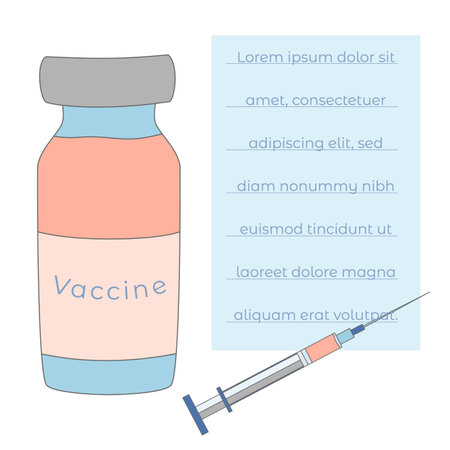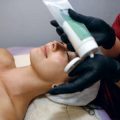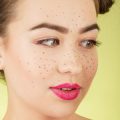1. Understanding Skincare Ingredients: What Actually Works
When it comes to affordable skincare, understanding the key ingredients can help you make informed choices without falling for marketing gimmicks. Many budget-friendly products contain powerful actives that deliver real results—just like their high-end counterparts. Let’s break down some of the most effective skincare ingredients and what they do for your skin.
Hyaluronic Acid: The Ultimate Hydrator
Hyaluronic acid (HA) is a powerhouse ingredient known for its ability to attract and retain moisture. It helps keep skin plump, smooth, and hydrated without feeling heavy or greasy.
How It Works:
- Binds up to 1,000 times its weight in water
- Improves skin elasticity and texture
- Suitable for all skin types, including oily and sensitive skin
Niacinamide: The Multitasker
Niacinamide (Vitamin B3) is one of the most versatile skincare ingredients. It helps with hydration, reduces redness, brightens skin tone, and even controls oil production.
Key Benefits:
- Reduces inflammation and redness
- Minimizes pores and regulates oil production
- Evens out skin tone and fades dark spots
Retinol: The Anti-Aging Superstar
A derivative of Vitamin A, retinol is widely recognized for its anti-aging benefits. It stimulates collagen production, speeds up cell turnover, and improves overall skin texture.
What It Does:
- Smooths fine lines and wrinkles
- Evens out skin tone by reducing hyperpigmentation
- Boosts collagen production for firmer skin
Ceramides: The Skin Barrier Protectors
Ceramides are naturally occurring lipids that strengthen the skin barrier, preventing moisture loss and protecting against environmental damage.
Main Functions:
- Reinforces the skin’s protective barrier
- Keeps moisture locked in to prevent dryness
- Irritation-friendly—great for sensitive skin types
The Key Ingredients at a Glance
| Ingredient | Main Benefit | Best For |
|---|---|---|
| Hyaluronic Acid | Deep hydration & plumping effect | All skin types, especially dry or dehydrated skin |
| Niacinamide | Evens out tone & controls oil production | Sensitive, oily, and acne-prone skin |
| Retinol | Smooths wrinkles & boosts collagen | Mature & acne-prone skin (use with caution on sensitive skin) |
| Ceramides | Strengthens the skin barrier & locks in moisture | Dull, dry, or sensitive skin types |
The best part? You don’t need to spend a fortune to find effective products containing these ingredients. Many affordable skincare brands offer high-quality formulations that deliver real results—just make sure youre choosing products with well-researched active ingredients.
2. The Myth of Expensive Skincare: Price vs. Effectiveness
Many people assume that the higher the price tag, the better the skincare product. Luxury brands often market their products as using “exclusive” ingredients or cutting-edge technology, leading consumers to believe that only expensive products can deliver real results. But is this really true? Let’s break down the science behind skincare pricing and effectiveness.
Does a Higher Price Mean Better Ingredients?
While some high-end products do contain quality ingredients, many drugstore alternatives use the same active components at a fraction of the cost. What truly matters in skincare are scientifically proven ingredients like:
- Hyaluronic Acid – Provides deep hydration and plumps the skin.
- Retinol – Boosts collagen production and reduces fine lines.
- Vitamin C – Brightens skin and fights free radicals.
- Niacinamide – Reduces redness and improves texture.
You don’t need to spend a fortune to get these ingredients in effective formulations.
How to Identify Quality Skincare at Affordable Prices
The key to finding great skincare without overspending is knowing what to look for. Here are some tips:
- Check the ingredient list – Look for active ingredients in effective concentrations.
- Avoid unnecessary fillers – Some luxury brands add fragrances and fancy packaging but little extra benefit.
- Look for dermatologist-approved brands – Many affordable brands are formulated with dermatologist input.
- Read reviews and clinical studies – Real user experiences and scientific backing matter more than branding.
Luxury vs. Affordable: A Comparison
To illustrate how pricing doesn’t always reflect effectiveness, let’s compare two common skincare products:
| Product Type | Luxury Brand ($$$) | Affordable Alternative ($) |
|---|---|---|
| Moisturizer with Hyaluronic Acid | $80+ (High-end brand with fancy packaging) | $15-25 (Drugstore brand with the same key ingredient) |
| Retinol Serum | $100+ (Luxury formula with added fragrance) | $20-30 (Budget-friendly version with pure retinol) |
| Vitamin C Serum | $90+ (Prestige brand with gold-infused packaging) | $15-40 (Dermatologist-recommended drugstore option) |
This comparison shows that many affordable products offer the same benefits without the luxury markup.
The Bottom Line: Focus on Ingredients, Not Price
The most important takeaway is that effective skincare isn’t about price—it’s about the right ingredients in well-formulated products. By understanding what works for your skin and making informed choices, you can achieve great results without breaking the bank.

3. Building a Budget-Friendly Skincare Routine
Creating an effective skincare routine doesn’t have to be expensive. By focusing on the essentials and avoiding unnecessary products, you can achieve healthy skin while staying within budget. Here’s how to prioritize what truly matters.
Understanding the Core Steps
A simple yet effective skincare routine consists of three main steps: cleansing, moisturizing, and sun protection. These are the foundation of healthy skin and should be your priority.
| Step | Purpose | Budget-Friendly Tips |
|---|---|---|
| Cleansing | Removes dirt, oil, and makeup to prevent breakouts. | Use a gentle, fragrance-free cleanser that suits your skin type. Drugstore brands often offer great options. |
| Moisturizing | Keeps skin hydrated and maintains its barrier function. | A basic moisturizer with ingredients like glycerin or ceramides is enough—no need for luxury creams. |
| Sunscreen | Protects against UV damage, preventing premature aging and skin cancer. | A broad-spectrum SPF 30+ sunscreen is essential. Many affordable drugstore brands offer reliable protection. |
Avoiding Unnecessary Products
The beauty industry often promotes multiple-step routines with toners, serums, and masks, but not all are necessary. Stick to what your skin truly needs:
- Toners: Unless you have specific concerns like acne or dryness, they are optional.
- Serums: If you have specific skin concerns (like hyperpigmentation or fine lines), choose one targeted serum instead of layering multiple products.
- Masks: Occasional use is fine, but they are not essential for daily skincare.
Simplifying Your Routine for Maximum Savings
A streamlined routine saves both time and money. Follow these tips to cut costs while maintaining effectiveness:
- Select Multi-Use Products: A moisturizer with SPF can eliminate the need for a separate sunscreen during daytime.
- Avoid Luxury Branding Traps: Many expensive products contain similar active ingredients as drugstore alternatives.
- Bigger Sizes for Better Value: Buying larger sizes of frequently used items can save money in the long run.
- Ditch Daily Exfoliation: Over-exfoliating can damage your skin. Stick to 2–3 times per week if needed.
The Bottom Line: Focus on What Works
You don’t need a 10-step routine to achieve great skin. Prioritize cleansing, moisturizing, and sun protection while skipping unnecessary extras. By choosing budget-friendly yet effective products, you can maintain healthy skin without overspending.
4. Drugstore vs. Luxury Skincare: Is There a Difference?
When it comes to skincare, many people assume that higher price means better quality. But is luxury skincare really worth the investment, or can drugstore products deliver similar results? Lets break down the differences between drugstore and high-end skincare.
Key Differences Between Drugstore and Luxury Skincare
The biggest distinctions between these two categories often come down to ingredients, packaging, and marketing. While luxury brands may offer a more premium experience, drugstore products often contain similar active ingredients at a fraction of the cost.
| Aspect | Drugstore Skincare | Luxury Skincare |
|---|---|---|
| Ingredients | Often contains the same active ingredients as luxury brands, but in different concentrations or formulations. | May feature exclusive or patented ingredients, but not always more effective than drugstore alternatives. |
| Packaging | Simple and functional packaging to keep costs low. | Elegant, high-end packaging that enhances the products perceived value. |
| Marketing & Branding | Less focus on branding; relies on affordability and accessibility. | Heavy emphasis on prestige, celebrity endorsements, and luxury appeal. |
| Price Point | Budget-friendly; widely available at pharmacies and retailers. | Significantly more expensive; often sold in department stores or specialty boutiques. |
| Effectiveness | Can be just as effective if they contain the right ingredients for your skin type. | May offer additional sensory benefits (texture, scent), but effectiveness varies by formulation. |
Are Expensive Skincare Products Worth It?
The truth is, price doesnt always equal performance. Many drugstore skincare products contain dermatologist-approved ingredients like retinol, hyaluronic acid, and niacinamide—the same actives found in luxury brands. What youre often paying for with high-end skincare is the brand name, marketing, and luxurious experience rather than superior results.
When to Splurge vs. When to Save
- SPLURGE: If you love indulgent textures, unique formulations, or have highly specific skin concerns that require specialized treatments.
- SAVE: For everyday essentials like cleansers, moisturizers, and sunscreens—drugstore options work just as well as their pricey counterparts.
The Bottom Line: Focus on Ingredients Over Price
No matter your budget, what truly matters is understanding what ingredients work best for your skin type. Instead of focusing solely on brand names, check ingredient lists and choose products backed by science rather than marketing hype. With the right knowledge, you can achieve healthy skin without overspending.
5. The Role of Lifestyle in Skincare Effectiveness
When it comes to skincare, what you put on your skin is only part of the equation. Your lifestyle choices—like hydration, diet, and sun protection—play a major role in maintaining healthy, glowing skin without the need for expensive products. Let’s explore how these factors contribute to skincare effectiveness.
Hydration: More Than Just Drinking Water
Proper hydration keeps your skin looking plump and radiant. While drinking enough water is essential, external hydration through moisturizers also helps maintain the skin barrier. Here’s a simple comparison:
| Hydration Method | Benefits |
|---|---|
| Drinking Water | Helps flush out toxins and supports overall skin function. |
| Using a Moisturizer | Locks in moisture and prevents dryness or irritation. |
A combination of both internal and external hydration ensures your skin stays healthy without relying on expensive serums or treatments.
The Impact of Diet on Skin Health
Your skin reflects what you eat. A diet rich in vitamins, antioxidants, and healthy fats can enhance your skin’s natural glow. Here are some key nutrients for better skin:
- Vitamin C: Supports collagen production and brightens the skin (found in oranges, strawberries, bell peppers).
- Omega-3 Fatty Acids: Reduces inflammation and keeps skin supple (found in salmon, walnuts, flaxseeds).
- Zinc: Helps with acne prevention and healing (found in pumpkin seeds, chickpeas, lentils).
A balanced diet provides long-term skin benefits that no expensive cream can replace.
The Importance of Sun Protection
Sunscreen is one of the most affordable yet effective ways to maintain youthful-looking skin. UV exposure causes premature aging, hyperpigmentation, and even increases the risk of skin cancer. Follow these simple sun protection tips:
- Use Broad-Spectrum SPF 30+ Daily: Protects against both UVA and UVB rays.
- Wear Protective Clothing: Hats and sunglasses provide extra defense against sun damage.
- Avoid Peak Sun Hours: Stay in the shade between 10 AM – 4 PM when UV rays are strongest.
Poor sun protection leads to faster aging signs, making sunscreen an inexpensive but crucial investment in skincare.
The Bottom Line: Consistency Over Cost
You don’t need luxury products to achieve great skin. Staying hydrated, eating nutrient-rich foods, and protecting yourself from the sun are simple yet powerful ways to support your skin naturally. By focusing on these affordable habits, you can maintain healthy skin without breaking the bank.


